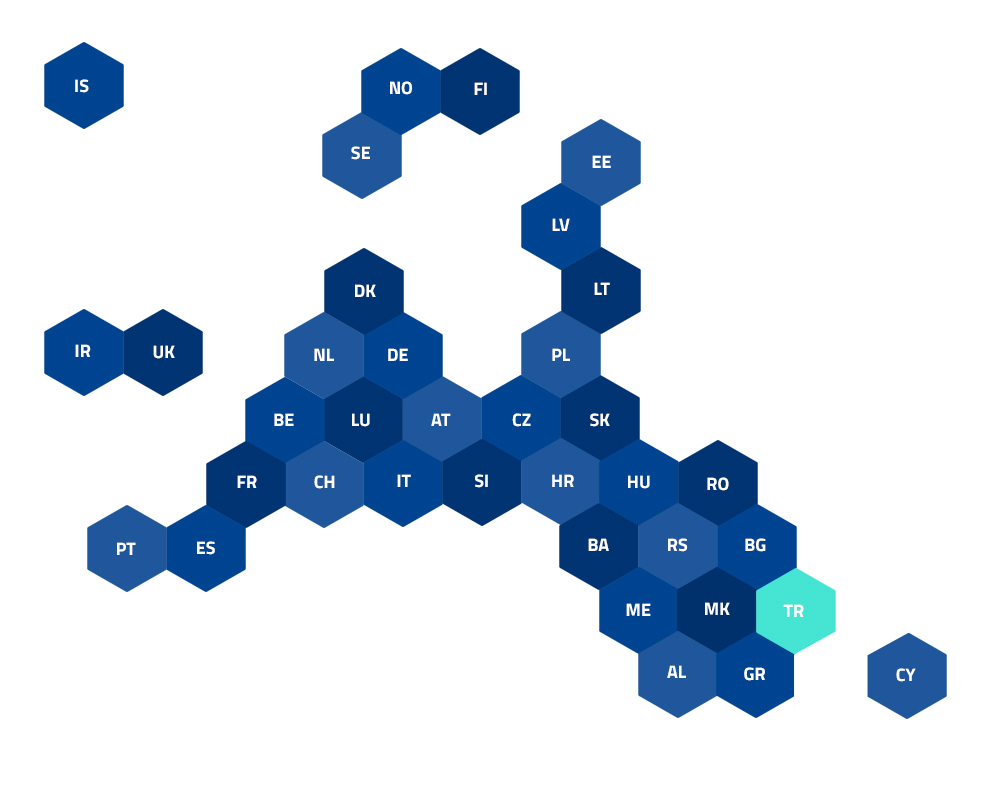The task of ENTSO-E is to promote reliable operation, optimal management and sustainable development of the pan-European electric power transmission system to ensure the security of supply and satisfy the needs of the internal energy market.
In-house indicator
More than 100 representatives of PSE are engaged in the work of ENTSO-E, actively participating at different levels of the organisation in all key tasks.
Our employees participate, among other things, in the process of preparing European Network Codes, issued as regulations of the European Commission, and guidelines to them. The Network Codes are regulatory tools for the implementation of the single electricity market in the
EU
– they contain common rules for the operation and management of power systems, and they are aimed to eliminate technical barriers for further integration of the market.
The Network Codes are legislative acts – EU Regulations – and as such they are directly applicable in the legal order of the EU Member States from the moment they enter into force. This entails a number of obligations. First of all the Member States must align their relevant laws and regulations with the norms arising from the Network Codes. Our company actively participates in the process. In addition, the TSO is obliged to adjust all regulatory measures which enable the transmission system operator’s tasks to be fulfilled, e.g. the Instruction of Transmission System Operation and Maintenance, to the provisions of the Network Codes.
The Network Codes give the Member States the option to regulate certain fields covered by the Network Codes within synchronous areas or capacity calculation regions, in order to take into account the specificities of the area or capacity calculation region concerned. For this reason, international cooperation is necessary between operators from a particular area or region in order to enable TCM (terms, conditions and methodologies) to be developed. These are documents prepared by TSOs from synchronous areas or capacity calculation regions. Our company actively participates in the process. The developed documents are approved by regulatory bodies in those areas or capacity calculation regions, i.e., in Poland, the President of the Energy Regulatory Office, or they are approved by the Agency for the Cooperation of Energy Regulators (ACER).



